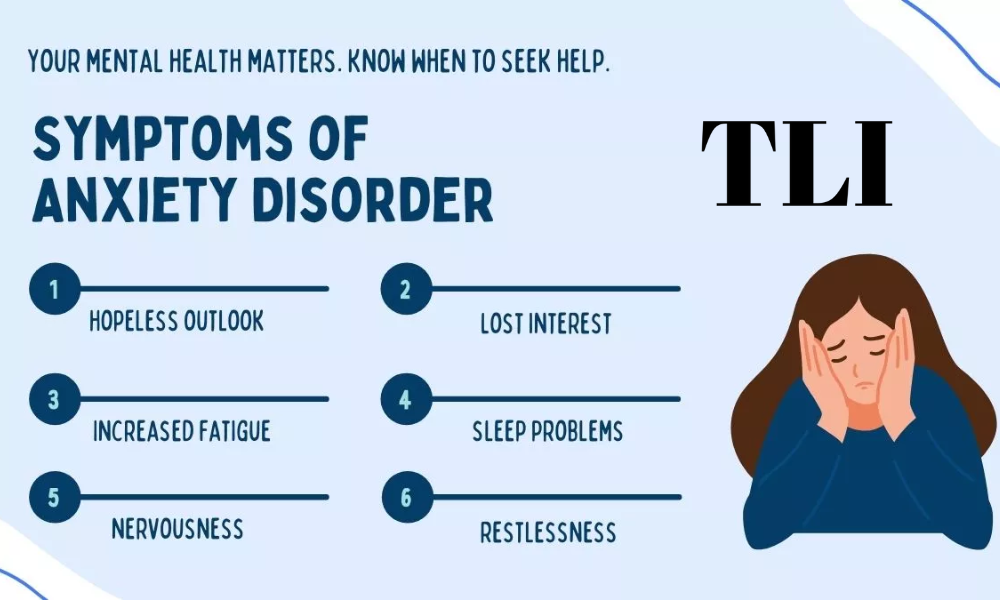8 Overlooked Signs of High-Functioning Anxiety

High-functioning anxiety is a form of anxiety that doesn’t always present as overwhelming panic or visible stress. People with high-functioning anxiety often appear successful, organized, and put together, masking inner struggles. Unlike other anxiety disorders, high-functioning anxiety can be subtle, with signs that are easy to overlook. Here are eight surprising indicators that might signal high-functioning anxiety.
1. Constant Overthinking
People with high-functioning anxiety tend to overthink even the smallest decisions, creating stress in their minds. Though they may appear calm, they are often plagued by an inner dialogue analyzing every decision. This habit of overthinking can cause mental fatigue and lead to increased anxiety levels over time.
2. Difficulty Saying No
Another subtle sign of high-functioning anxiety is the inability to say no, often out of fear of disappointing others. Individuals with this type of anxiety are typically people-pleasers, agreeing to every request to avoid potential conflict or judgment. This behavior can lead to burnout, as they take on more than they can handle to meet others’ expectations.
3. Overachievement and Perfectionism
Many people with high-functioning anxiety are overachievers and perfectionists, driven by a constant need to excel. While this can appear as ambition, it’s often fueled by an underlying fear of failure. Perfectionism can lead to a cycle of setting high standards, feeling stressed to meet them, and then experiencing anxiety over the possibility of not achieving them.
4. Excessive Worrying About the Future
Even when things are going well, those with high-functioning anxiety may worry excessively about what could go wrong. This future-focused anxiety often creates a sense of dread that can overshadow their successes. Anticipatory anxiety is common, leading individuals to constantly imagine worst-case scenarios.
5. Need for Routine and Control
A strong desire for control and routine is another subtle indicator of high-functioning anxiety. People with this condition often feel the need to plan everything meticulously. Structure and predictability provide comfort, as they reduce the potential for unexpected challenges. Disruptions to their routine can lead to heightened anxiety, even if they appear outwardly composed.
6. Social Withdrawal Despite a Busy Schedule
People with high-functioning anxiety might have active social or professional lives, yet they often experience a deep-seated desire to avoid social gatherings. They may keep their schedules full to distract themselves but avoid connecting on a more personal level. Social withdrawal can be subtle, manifesting as declining social invitations or keeping conversations superficial to maintain a sense of control.
7. Insomnia and Racing Thoughts
One of the physical manifestations of high-functioning anxiety is insomnia, often caused by racing thoughts and an inability to switch off mentally. Many people with high-functioning anxiety struggle to fall asleep or wake up frequently throughout the night, thinking about their daily concerns or future worries. This chronic lack of rest can, in turn, increase anxiety levels and affect overall well-being.
8. Over-reliance on Coping Mechanisms
While everyone has coping strategies, those with high-functioning anxiety may rely heavily on certain behaviors or routines to manage their stress. This can include over-caffeinating to stay focused, exercising excessively, or using work as a distraction. Coping mechanisms may help temporarily, but an over-reliance on them can prevent people from addressing the root causes of their anxiety.
How to Manage High-Functioning Anxiety
Recognizing these subtle signs is an essential step in managing high-functioning anxiety. Here are a few ways to begin addressing it:
- Mindfulness practices: Techniques like meditation and deep breathing can help individuals manage stress and reduce anxiety.
- Setting boundaries: Learning to say no and limiting commitments can help prevent burnout and stress.
- Therapy: Speaking with a therapist can offer new coping strategies and help identify underlying causes of anxiety.
Understanding high-functioning anxiety and identifying its subtle signs can empower individuals to seek appropriate help and improve their quality of life. For more information and resources on managing anxiety, visit mental health organizations online.
